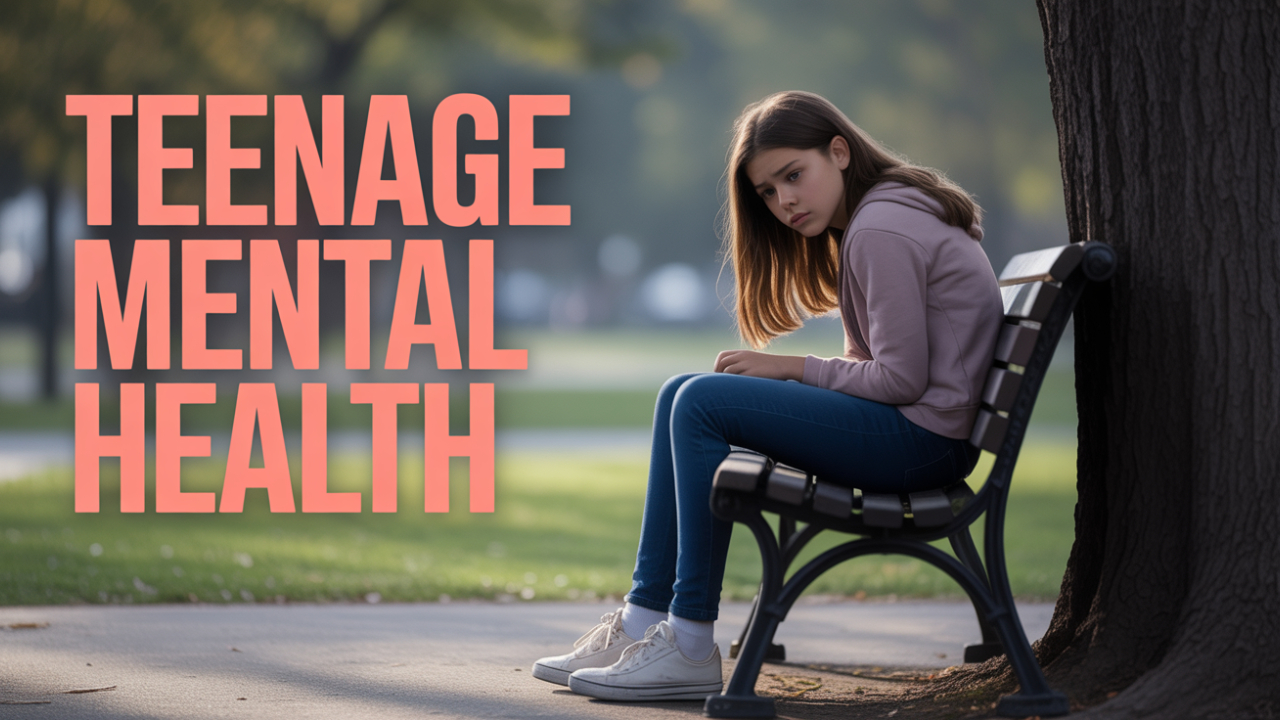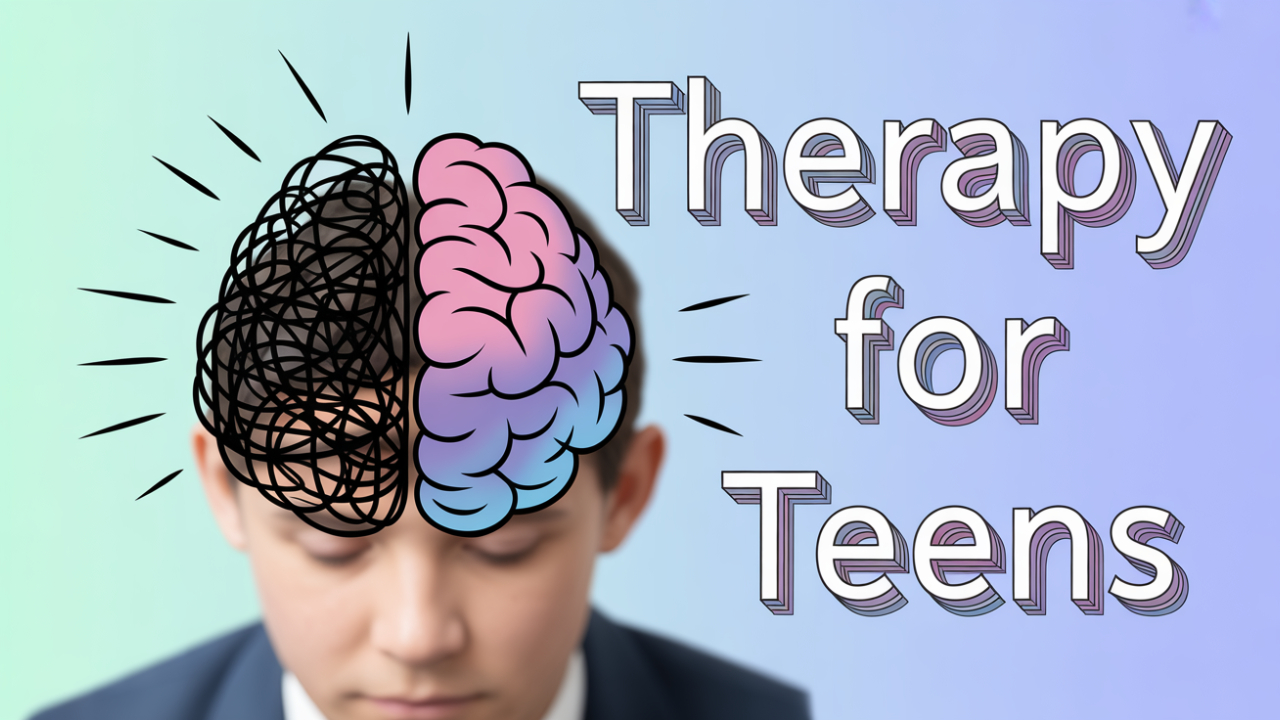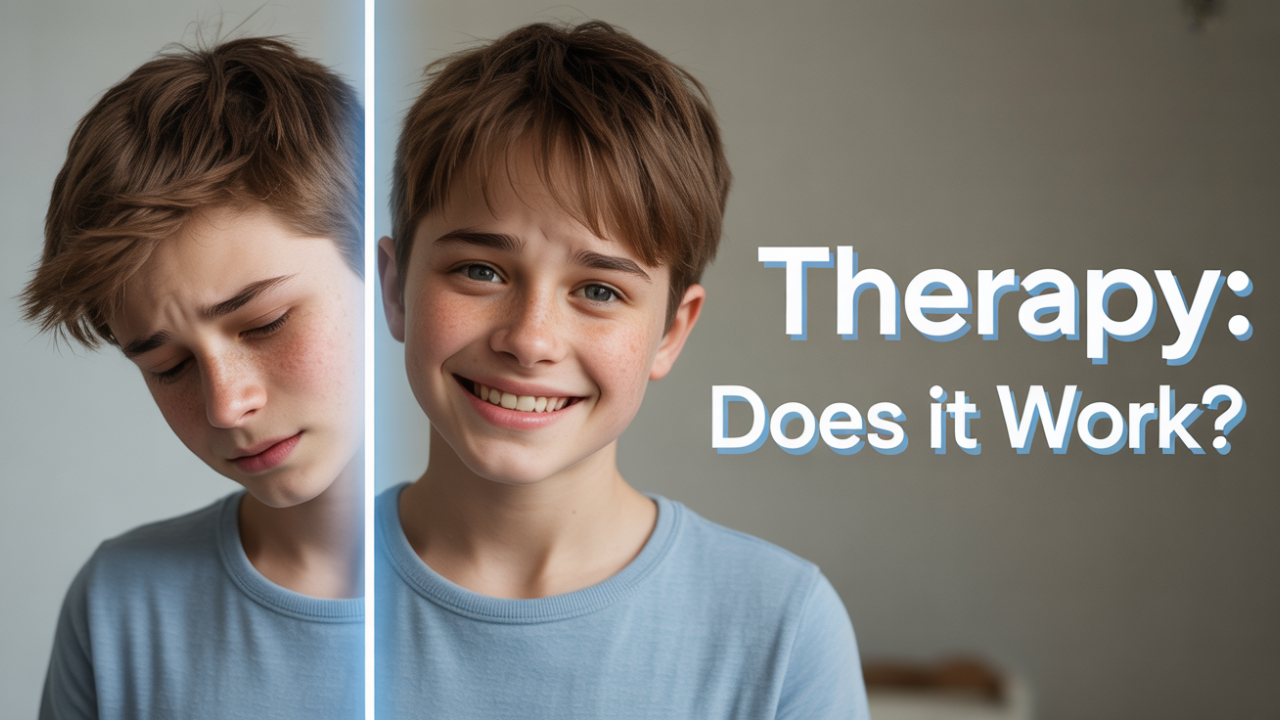Can Therapy Help My Teen?
A Parent’s Guide to Understanding the Benefits of Adolescent Counseling
Raising a teenager can feel overwhelming. Many parents struggle to understand shifts in mood, behavior, and motivation as their child moves through adolescence. If you’ve been asking yourself, “Can therapy help my teen?” the answer is yes—therapy can offer a structured and supportive safe space where teens process their thoughts and feelings, improve coping skills, and build psychological resilience.
Adolescents often face growing stress from school, peer pressure, bullying, and the internet. These pressures can affect their mental health, relationships, and quality of life. When teens have access to a professional who understands the complexities of the adolescent mind, they’re more likely to gain insight, manage emotional distress, and improve overall well-being.

Why Teens Struggle Emotionally and Behaviorally
Adolescence brings rapid changes in the brain, hormones, and social environments. During this time, teens start forming their own identity, values, and beliefs. This process can lead to confusion, fear, and emotional ups and downs. Common concerns include:
Anxiety or anxiety disorder
Depression, sadness, or grief
Irritability and anger
Social isolation
Stress related to school or family dynamics
Substance abuse or early alcohol use
Negative effects of bullying, violence, or abuse
Impulsivity or risky decision-making
Concerns related to personality disorder or borderline personality disorder
When left unaddressed, these challenges may impact school performance, friendships, and overall health.
Signs That Your Teen May Need Therapy
Not every struggle means your teen has a mental health condition, but certain signs suggest they may benefit from speaking to a mental health professional. These include:
Sudden shifts in mood, sleep, or eating patterns
Withdrawal from friends or family, including siblings
Loss of motivation or interest in activities they once enjoyed
Increased irritability, worry, or expressions of fear
Decline in academic performance or attention issues
Thoughts or talk of suicidal ideation
Self-harming behavior or aggression
Experimentation with drugs, alcohol, or other forms of addiction
If these patterns persist for more than a few weeks, it’s time to seek help from a therapist, school counselor, or health professional.

How Therapy Supports Teens
Teen therapy provides a safe and confidential space where adolescents can openly express their feelings, thoughts, and fears. A licensed therapist or counselor helps the teen develop coping skills, regulate emotions, and address root causes of their struggles. These professionals use evidence-based approaches grounded in psychology and psychiatry to improve mental, emotional, and behavioral health.
What Teens Learn in Therapy
Problem solving and emotional regulation
How to handle anger, anxiety, or panic
Effective stress management strategies
Improved communication and social skills
Healthier reactions to peer pressure and conflict
Greater confidence and self-awareness
Management of symptoms related to personality disorder, trauma, or depression
Therapy also offers a place to explore personal values, goals, and family dynamics. These conversations strengthen understanding between the teen and their caregiver or parent, helping build trust and cooperation.

Types of Therapy Used with Teens
Therapists use different approaches depending on the teen’s symptoms and personality. Some of the most effective include:
Cognitive Behavioral Therapy (CBT)
CBT focuses on recognizing unhelpful thought patterns and changing negative behaviors. It’s highly effective for treating anxiety, depression, and low self-worth.
Dialectical Behavior Therapy (DBT)
DBT is often used with teens who experience intense emotions, impulsivity, or suicidal ideation. It teaches distress tolerance, empathy, and emotional control, improving daily functioning.
Family Therapy
This therapy includes parents, siblings, or other family members to improve communication and strengthen relationships.
Trauma-Focused Therapy
Teens dealing with abuse, violence, or loss may benefit from trauma-informed counseling, which helps process difficult experiences safely.
Group Therapy
Group sessions allow teens to share experiences, develop social skills, and realize they’re not alone in their struggles. This can be especially helpful for teens who feel socially isolated.
The Benefits of Therapy for Teens
Therapy can transform a teen’s life by helping them build resilience, emotional balance, and coping mechanisms. Long-term benefits include:
Increased psychological resilience and emotional control
Improved relationships at home, school, and in the community
Greater self-understanding and insight
Stronger response to stress and daily challenges
Reduced symptoms of mental disease or emotional disorders
More effective anger management and communication
A proactive approach to long-term mental health
Therapy also helps reduce reliance on medication when appropriate, or complements medication management plans for more severe symptoms.
Supporting Your Teen Through Therapy
As a parent, your support plays a crucial role in your teen’s healing. Here’s how you can help:
Encourage Without Pressure
Normalize the idea that mental health care is just as important as physical care. Avoid making therapy feel like a punishment.
Respect Their Privacy
Give them the space to build trust with their therapist. Respecting confidentiality allows therapy to be more effective.
Be Involved When Invited
Join family sessions when asked. Work on better conversation skills and show a willingness to change unhealthy dynamics at home.
Stay Consistent
Make sure your teen keeps appointments and applies what they learn. Be patient. Change happens over time, not overnight.
Therapy Isn’t a Sign of Failure—It’s an Act of Care
Asking for help is a strength, not a weakness. Therapy gives teens the tools to face challenges, build healthy habits, and feel supported. It improves mental and emotional health, strengthens family relationships, and sets the foundation for long-term well-being.
If your teen is struggling with stress, anxiety, eating, sleep, identity, or emotional distress, don’t wait. At Adolescent Mental Health, we help teens throughout Orange County access personalized therapy from licensed professionals. We accept most insurance plans and offer confidential care in a supportive environment.
Contact Adolescent Mental Health Today
Visit adolescentmentalhealth.com or call to schedule a consultation. Help your teen take the next step toward healing.
Frequently Asked Questions
1. Is therapy confidential for teens?
Yes. Teens have the right to a private space in therapy. However, therapists must break confidentiality if the teen is at risk of harming themselves or others.
2. What if my teen doesn’t want therapy?
Start with an open conversation. Allow them to share their feelings, fears, or misunderstandings about therapy. A consultation session can help ease their discomfort.
3. How long does therapy last?
Each patient is different. Some teens benefit in a few weeks, while others may need ongoing care for several months or longer.
4. What qualifications should a teen therapist have?
Look for licensed therapists, counselors, or psychologists with training in adolescent mental health. Check credentials and experience with issues like depression, anxiety, trauma, or substance abuse.









